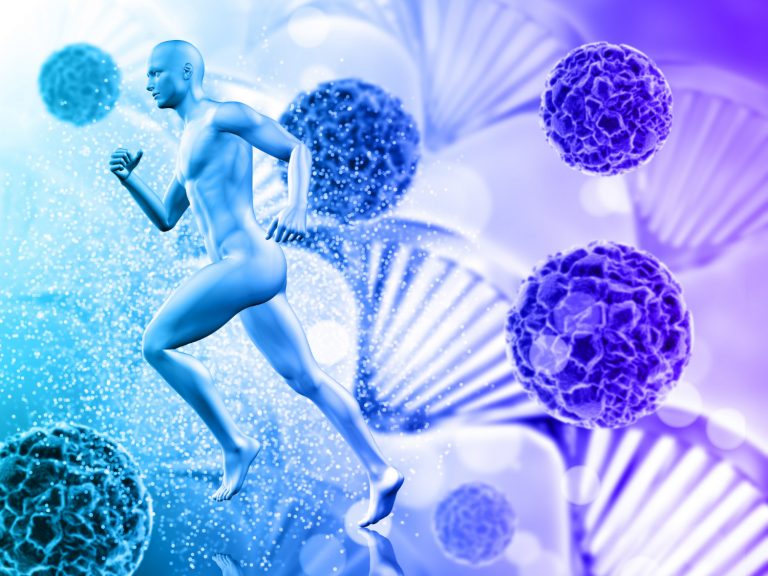Boosting your NAD levels naturally can transform your vitality, energy, and overall well-being. If you’re feeling sluggish or just not quite yourself, understanding how to elevate your NAD levels is crucial. Let’s dive into why this little molecule matters and how you can enhance it without any complicated routines.
Contents
What is NAD and Why Should You Care?
NAD, or Nicotinamide Adenine Dinucleotide, is a coenzyme found in every cell of your body. Think of it as a spark plug for your cells, igniting energy production and playing a pivotal role in various biological processes. It’s essential for converting food into energy, repairing DNA, and regulating your circadian rhythm.
As we age, NAD levels naturally decline, leading to fatigue, decreased metabolism, and even cognitive decline. The good news? There are simple, natural ways to boost these levels and revitalize your health.
1. Embrace a Balanced Diet Rich in NAD Precursors
One of the easiest ways to boost your NAD levels is through your diet. Certain foods are rich in NAD precursors, which are essential for your body to produce more of this vital coenzyme.
Foods to Include:
- Dairy Products: Milk, cheese, and yogurt contain tryptophan, which your body can convert into NAD.
- Meat and Fish: Lean meats, especially turkey and chicken, as well as fish like salmon, offer high levels of niacin.
- Nuts and Seeds: Almonds, sunflower seeds, and peanuts are packed with niacin and other nutrients.
- Green Vegetables: Spinach, broccoli, and asparagus are not just good for your body; they help boost NAD levels too.
By incorporating these foods into your daily meals, you’re not just eating well; you’re actively fueling your body’s ability to produce NAD.
2. Get Moving: Regular Exercise is Key
Exercise is a game-changer when it comes to boosting your NAD levels naturally. Physical activity increases the demand for energy in your cells, prompting them to produce more NAD.
How to Get Started:
- Cardio Workouts: Engage in activities that raise your heart rate, like jogging, cycling, or dancing. Aim for at least 150 minutes of moderate aerobic activity each week.
- Strength Training: Incorporate resistance exercises into your routine. Lifting weights or doing body-weight exercises not only builds muscle but also stimulates NAD production.
- Incorporate Movement into Your Day: Take the stairs instead of the elevator, go for a brisk walk during lunch, or try yoga. Every little bit counts!
Moving your body isn’t just good for your heart; it’s also a powerful way to boost your NAD levels and enhance your overall well-being.
3. Prioritize Quality Sleep
Sleep isn’t just a luxury; it’s a necessity for your health. Quality sleep plays a crucial role in regulating your body’s NAD levels. When you sleep, your body goes into repair mode, where NAD is essential for DNA repair and cellular restoration.
Tips for Better Sleep:
- Establish a Routine: Go to bed and wake up at the same time every day to help regulate your internal clock.
- Create a Relaxing Environment: Make your bedroom a sanctuary. Keep it dark, cool, and quiet.
- Limit Screen Time: Reduce exposure to screens at least an hour before bedtime. The blue light can disrupt your circadian rhythm and hinder NAD production.
Prioritizing sleep is a simple yet powerful way to ensure your body is producing enough NAD while you recharge.
4. Consider Intermittent Fasting
Intermittent fasting (IF) has gained popularity for good reason—it’s not just about weight loss. Research suggests that IF can enhance NAD levels and promote longevity. By giving your cells a break from constant energy intake, you allow them to focus on repair and regeneration.
Ways to Try Intermittent Fasting:
- 16/8 Method: This involves fasting for 16 hours and eating during an 8-hour window. For example, if you eat from noon to 8 PM, you skip breakfast but still have a nice lunch and dinner.
- 5:2 Diet: Eat normally for five days of the week, and restrict calories to about 500-600 on two non-consecutive days.
Before starting any fasting regimen, consult with a healthcare professional to ensure it’s right for you.
5. Harness the Power of Supplements Wisely
While it’s always best to get your nutrients from food, sometimes supplements can be beneficial in boosting your NAD levels. Before diving in, consult with a healthcare provider to find the right fit for your needs.
Popular Supplements to Consider:
- Nicotinamide Riboside (NR): This supplement is a potent NAD precursor that has shown promising results in clinical studies.
- Nicotinamide Mononucleotide (NMN): Similar to NR, NMN helps to increase NAD levels and has been linked to anti-aging benefits.
Be cautious; not all supplements are created equal. Look for high-quality brands and always read labels carefully.
Bottom Line
Boosting your NAD levels naturally is a journey that involves nourishing your body, moving it joyfully, and prioritizing self-care. By embracing a balanced diet, regular exercise, quality sleep, intermittent fasting, and considering supplements wisely, you can elevate your energy and enhance your well-being.
Take action today—your body deserves the best!
Frequently Asked Questions
1. How quickly can I see results from boosting my NAD levels?
Results can vary, but many people start to feel more energized within a few weeks of making dietary and lifestyle changes.
2. Are there any side effects to consider when taking supplements?
While generally safe, some people may experience mild digestive issues. Always consult a healthcare provider before starting any new supplement.
3. Can I boost NAD levels through lifestyle changes alone?
Absolutely! Many people find significant improvements through diet, exercise, and sleep alone, without the need for supplements.
Invest in your health today and watch how your body responds. You’ve got this!
Get Your FREE Natural Health Guide!
Subscribe now and receive our exclusive ebook packed with natural health tips, practical wellness advice, and easy lifestyle changes, delivered straight to your inbox.






